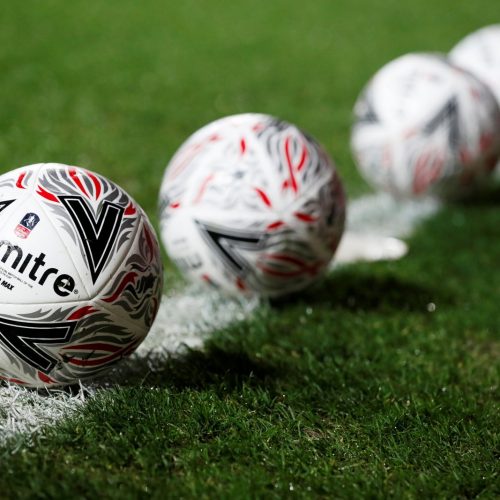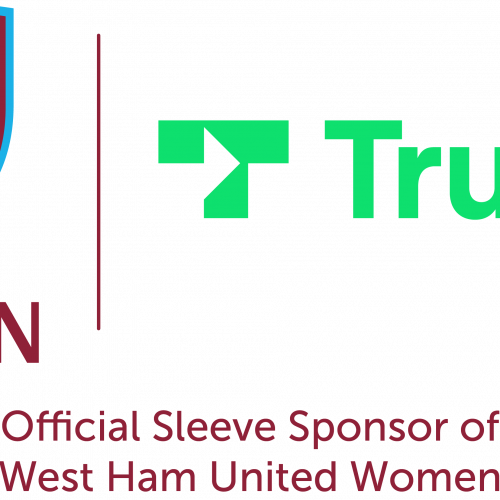World Cup 2018: How Russian football is using digital to prepare for the tournament
This is Part 2 of Alex Grudnev’s look at the Russian national team’s approach to social media in the run-up to the 2018 World Cup. Make sure you read Part 1 here. This time, we look at social media use during last two friendly games of the Russian team.
The Russian national football team played two games to close out this calendar year, and the rivals were top-quality: runners-up at the 2014 World Cup, Argentina, and the winners of the 2010 trophy, Spain. Symbolically, the game against Argentina was played in the arena of the upcoming World Cup final, the Luzhniki stadium, which had just reopened after reconstruction.
Messi for promotion, Messengers for communication
Messi was chosen as the main celebrity invited for the opening of the renovated stadium. His images were used everywhere in the game’s previews, and on social media too! Almost the whole video from the official account of the Russian team about the Argentinian training was dedicated to Messi.
Broadcasters made use of the Barcelona legend’s popularity too, Russian TV channel Channel One made a 51-second promo for the game, saying in the end “Messi… Messi will come”.
In the end, it worked. The stadium was full (78.750 is a new record for Russian national football team). Obviously, the game with such a big crowd in a new stadium turned out to a real challenge for the organizers. They created two channels for the Luzhniki Arena in messenger apps (Telegram and Viber) to keep fans updated with the information around the game. The post about these channels was published on the web one day before the game, on both Twitter and in Instagram stories within Russian team accounts.
Накануне матча Россия — Аргентина созданы каналы стадиона Лужники в Telegram https://t.co/LPPpoUFIZd и Viber https://t.co/3moHo9JjSC для информирования болельщиков обо всем, что происходит на стадионе и вокруг него. Подписывайтесь и сделайте свой поход на футбол комфортным! pic.twitter.com/Z9MA3uKEvP
— Сборная России (@TeamRussia) November 10, 2017
As a result, a weak promotion helped to get only 750 subscribers on the Telegram channel, although some messages had up to 1.2.k views. The number for the Viber channel subscriptions was even lower, with only 193 users. The figures look miniscule for a 79k audience in the stadium itself. Both channels provide mostly the same information and were posted in Russian. They informed fans about changes in transport routes, showed some maps, and listed prohibited and allowed items in the stadium. On matchday morning it posted, for example, that umbrellas are allowed due the weather conditions.
The idea of testing messenger channels during a friendly game looks great, but it remains only a one-way communication. However, in case of emergency having an option for online support could ease tensions. It could also help manage the situation after the game: when thousands of matchgoers were stuck on the second level of the stadium for over 30 minutes after the Argentina game, the channels kept silence. As a result fans became annoyed and they overreacted on social media. Even the official ambassador of World Cup (a famous Russian commentator Dmitry Guberniev) criticized the organizers of the game posting on Instagram saying “The second level is unable to leave the stadium for about 30 minutes! Will we do the same during World Cup?”
The next day he posted again on Instagram, supporting the idea of the other user with some irony: “I agree. Our aim for the World Cup next year is to get out of the Luzhniki”. The post ended even with a hashtag #GetOutOfLuzhniki.
Main topics on social
Together with the match organization the main topic on social after the game was a T-shirt exchange between Messi and Russia midfielder Denis Glushakov. It attracted lots of attention, Denis did it at half time and the whole moment was captured on video by the RFS TV guys. In a few minutes the video went viral, generating jokes from the fans.
The second Russia game against Spain attracted less attention, and in terms of organization it was smoother. Besides the Russian performance – and that of the referee – the discussions raised were around the injury to Russian goalkeeper Andrei Lunev, who suffered a head injury when he collided with Spain’s Rodrigo. With no substitutions left, midfielder Glushakov became the star once again: he made his debut as a goalkeeper some minutes before the final whistle. Social media users marked that he did not concede any goals and Denis commented “I am the only one goalkeeper in the history of Russian football without any goals conceded”.
The situation of the goalkeeper Lunev was also the focus of many fans. People were worried about his health condition and RFS marketers perfectly worked out the situation. They quickly informed that the injury was not serious and even quoted Lunev himself, “Don’t worry, I am fine. Thanks for your support”.
If you read the part one of this look at the social media around Russia’s recent friendlies, you will remember RFS TV. This time, the guys did their job perfectly, in a few days they recorded a short video from the goalkeeper addressed to the fans. It was well received.
Hashtags during the games
Russian users seem to prefer to use Cyrillic hashtags more than Latin ones. Most people posted from both games using just the names of the teams in Cyrillic as hashtags (#РоссияАргентина, #РоссияИспания, meaning #RussiaArgentina and #RussiaSpain). It was easy to use and easy to remember. The navigation with these hashtags looks easier too. Content managers know it and they put #RussiaSpain with some other tags for the start of ticket sales.
Russian team accounts have their own hashtags, which are always used to mark their posts (#ВместеМыКоманда, which means “together we are the team”). It did not go viral, though the fans also use it in their posts from time to time.
Interestingly, some other media outlets and journalists used eight or nine other hashtags, but not the most popular ones. It seems that the users use tags only based on their own thoughts and needs.
Surprisingly, the main federal sport channel makes its posts without any hashtags at all.
Creative ideas
Channel One, which broadcast both games online added two additional cameras to their livestreams: a 360 degree view from the Russian bench and one from a spectator’s seat in the stand were available online on the broadcaster’s YouTube channel. It did not look particularly impressive, though fans at home could watch the crowd and player reactions in the most emotional moments of the game.
Another interesting idea is a live-stream on Instagram, when the teams were entering the field. The fans could see the whole process and have a feeling of presence without any interference.
You might also like
Leeds United become first football club to sell official jerseys on TikTok
Leeds United is the first football club in the world to partner with TikTok to sell official merchandise and replica jerseys. Coinciding with the release of the new rhapsody purple,
Lewes FC Appoints Sue Anstiss To Its Board Of Directors
The Lewes FC Board is delighted to announce that it has co-opted Sue Anstiss as a Lewes FC Director. Sue has been a driving force for equality in sport for
Trustly extends partnership to become West Ham United Women’s Sleeve Partner
West Ham United is pleased to announce that Trustly has enhanced its relationship with the Club by becoming the Women’s Sleeve Partner. Trustly, the leading global account-to-account payments platform, became












